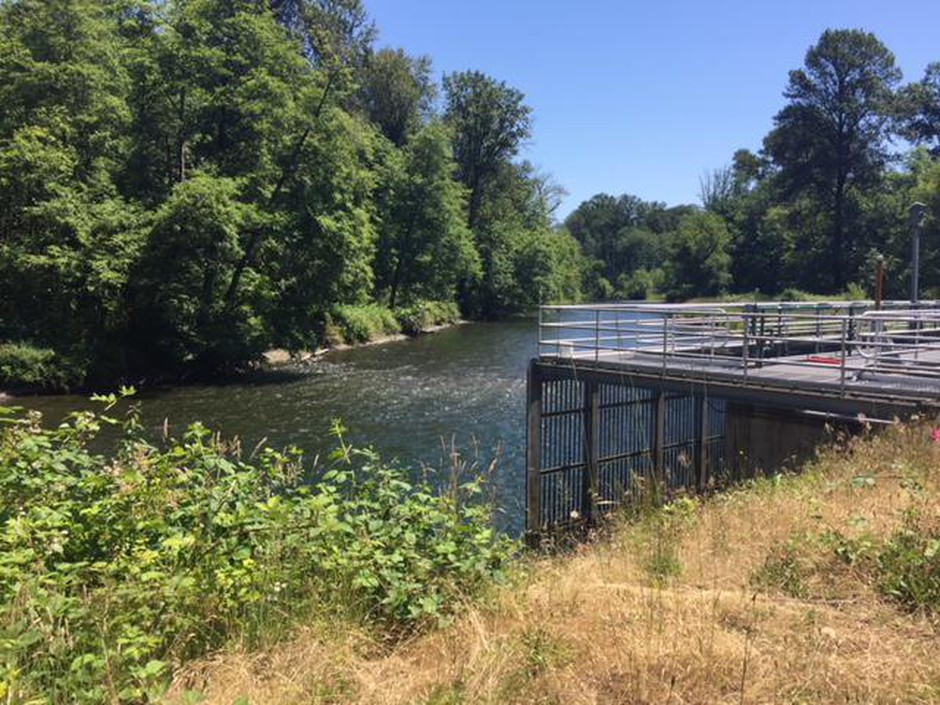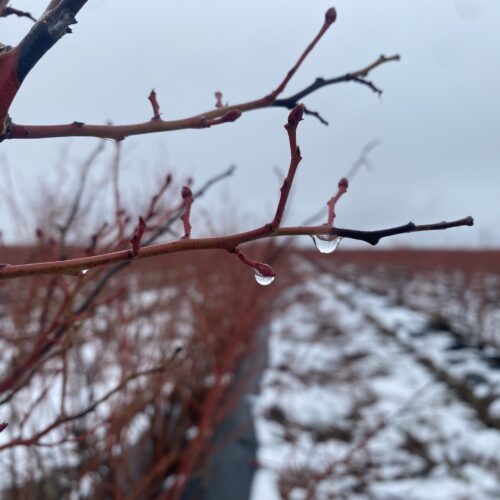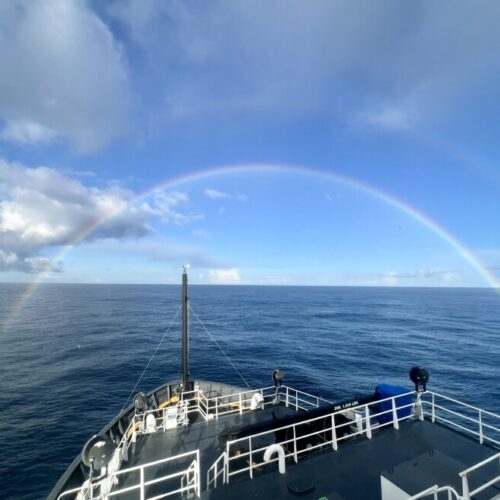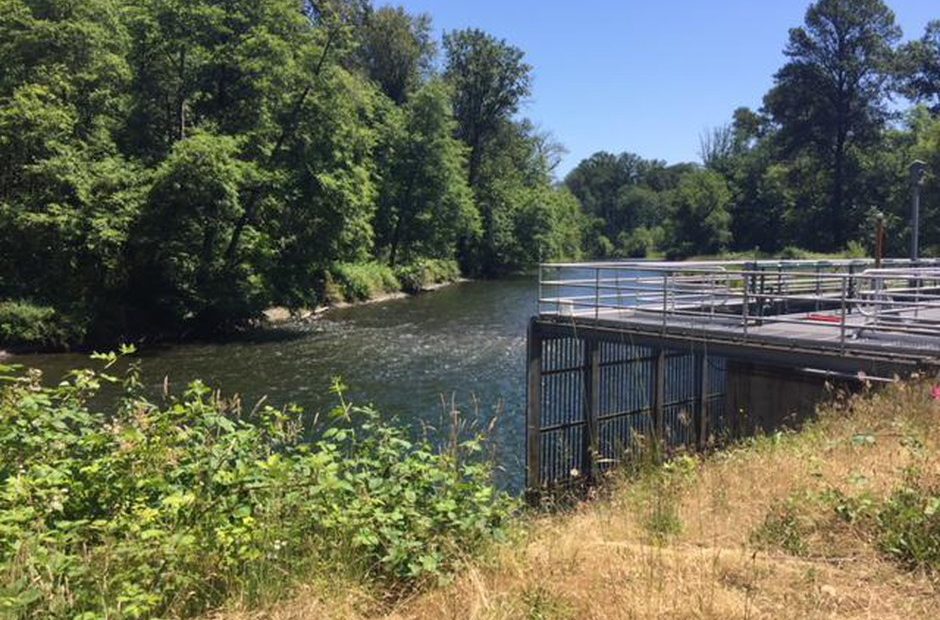
Salem Tests A New Way To Remove Toxins From Drinking Water
After issuing two drinking water advisories for toxins produced by a harmful algae bloom, Salem, Oregon is testing out a possible solution.
Algae in Detroit Lake is sending cyanotoxins into the North Santiam River, where Salem gets its drinking water.
In response, the city has stockpiled 50,000 pounds of powdered activated carbon at its Garen Island Water Treatment Facility in Stayton.
Katie Ottoboni with Carollo Engineers said it’s the best immediate solution her company could come up with to keep the city’s drinking water safe.
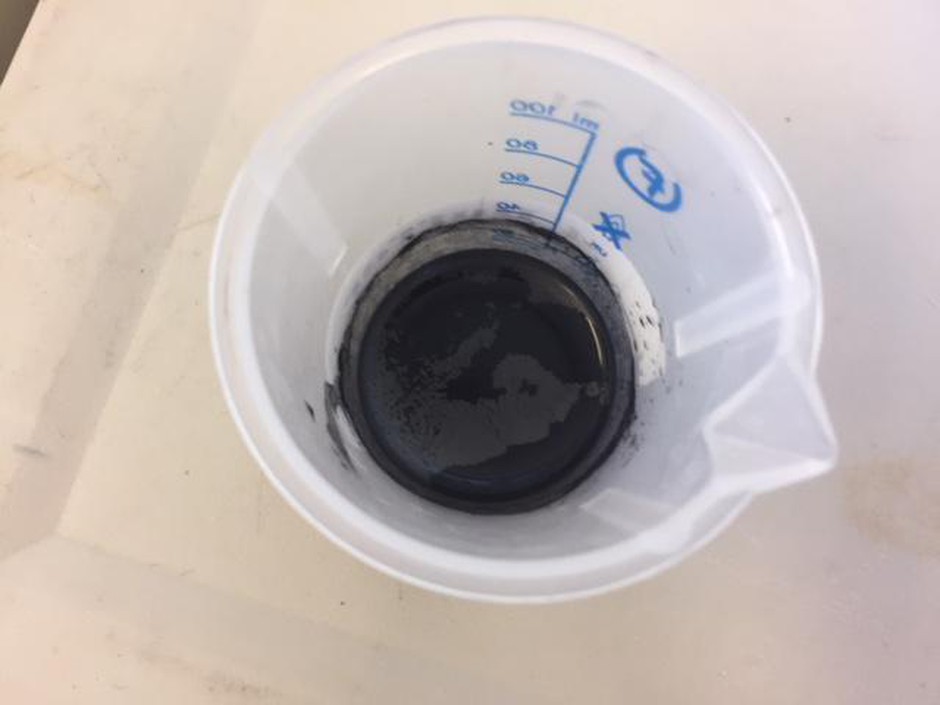
An activated carbon solution will be added to water from the North Santiam river to absorb toxins produced by a nearby algae bloom in Detroit Lake. CREDIT: CASSANDRA PROFITA
She’s leading a pilot test of a new treatment system that would add activated carbon to the water from the North Santiam River to absorb the toxins.
“We’re using this as an initial response, and we may look at additional long-term solutions,” she said. “This is the quickest, best method we have to address the issue at hand.”
The system allows the carbon to settle out before the water goes through the city’s normal slow-sand treatment process.
Officials say the system will only be used if it is needed to keep the city’s drinking water safe, and they are still considering alternative drinking water sources such as the Willamette River or local groundwater.
While the latest tests show Salem’s drinking water is now safe to drink, an advisory warning is still in place.
Copyright 2018 Oregon Public Broadcasting
Related Stories:
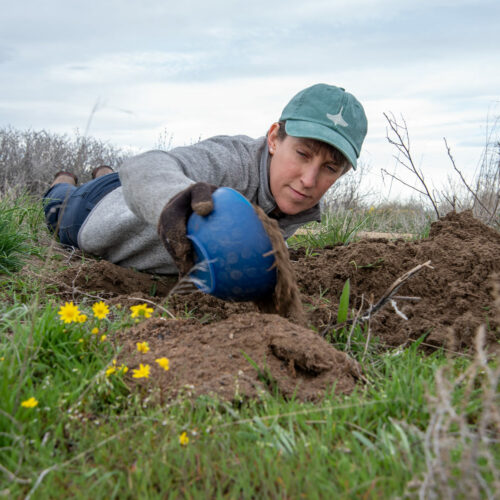
Ecologists help with burrowing owl ‘spring cleaning’ at Umatilla Chemical Depot
Lindsay Chiono, wildlife habitat ecologist for the Confederated Tribes of the Umatilla Indian Reservation (CTUIR), does some seasonal maintenance, or spring cleaning, on one of the 180 total artificial nesting

Washington, Idaho rank high for public health emergency preparedness
Both states saw steady or increased funding for public health, but Idaho still among lowest for vaccinations.

Washington state reports 7-year peak in influenza-related deaths
The Washington state Department of Health reported on March 20th that influenza activity reached its highest levels in seven years, with the most flu-related deaths since the 2017-2018 flu season.

